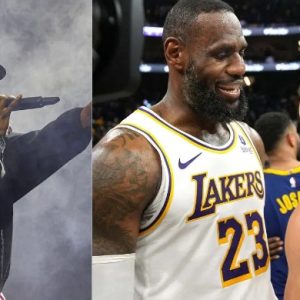In the annals of NBA history, the tale of Kwame Brown’s career is a cautionary one. The promising young player, selected as the first overall pick in the 2001 NBA Draft by the Washington Wizards, had his career trajectory altered by none other than the legendary Michael Jordan.
Brown, a high school prodigy, was thrust into the limelight at the tender age of 19. The pressure was immense, but it was exacerbated by Jordan’s notoriously tough leadership style. Jordan, the Wizards’ President of Basketball Operations, saw potential in Brown and hoped to mold him into a superstar.
However, Jordan’s approach, which worked wonders on seasoned professionals, proved detrimental for Brown. The relentless criticism and high expectations placed on the young player’s shoulders were overwhelming. Brown was expected to perform at the level of a seasoned professional, an unrealistic expectation for any rookie.
Jordan’s return to the court in 2001 added another layer of complexity. The dynamic shifted, and Brown found himself playing alongside his mentor. The constant scrutiny from Jordan, both on and off the court, took a toll on Brown’s confidence.
Despite showing flashes of brilliance, Brown struggled to find consistency. The mental strain of living up to Jordan’s expectations seemed to affect his game, leading to a decline in his performance. Brown was traded to the Lakers in 2005, but the damage was done. His confidence, once his greatest asset, had been eroded.
In retrospect, it’s clear that Jordan’s handling of Brown was a misstep. While his intentions might have been good, his methods were ill-suited for nurturing a young talent like Brown. This serves as a reminder that great players don’t always make great mentors, and that everyone, even the GOAT, can make mistakes.
Brown’s career serves as a stark reminder of the pressures young athletes face and the importance of supportive, understanding mentors in their development.





